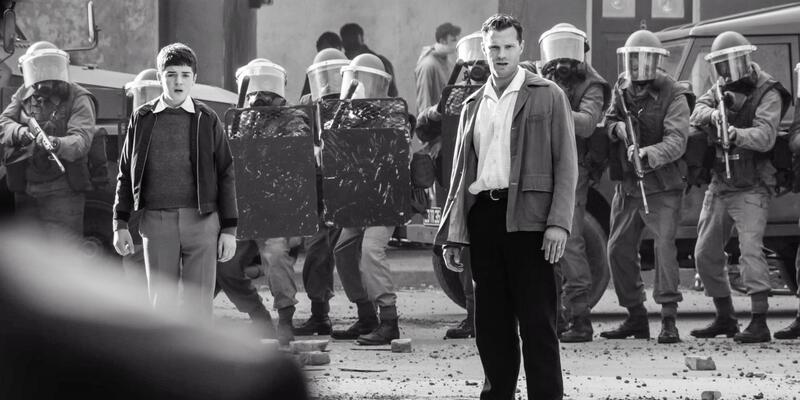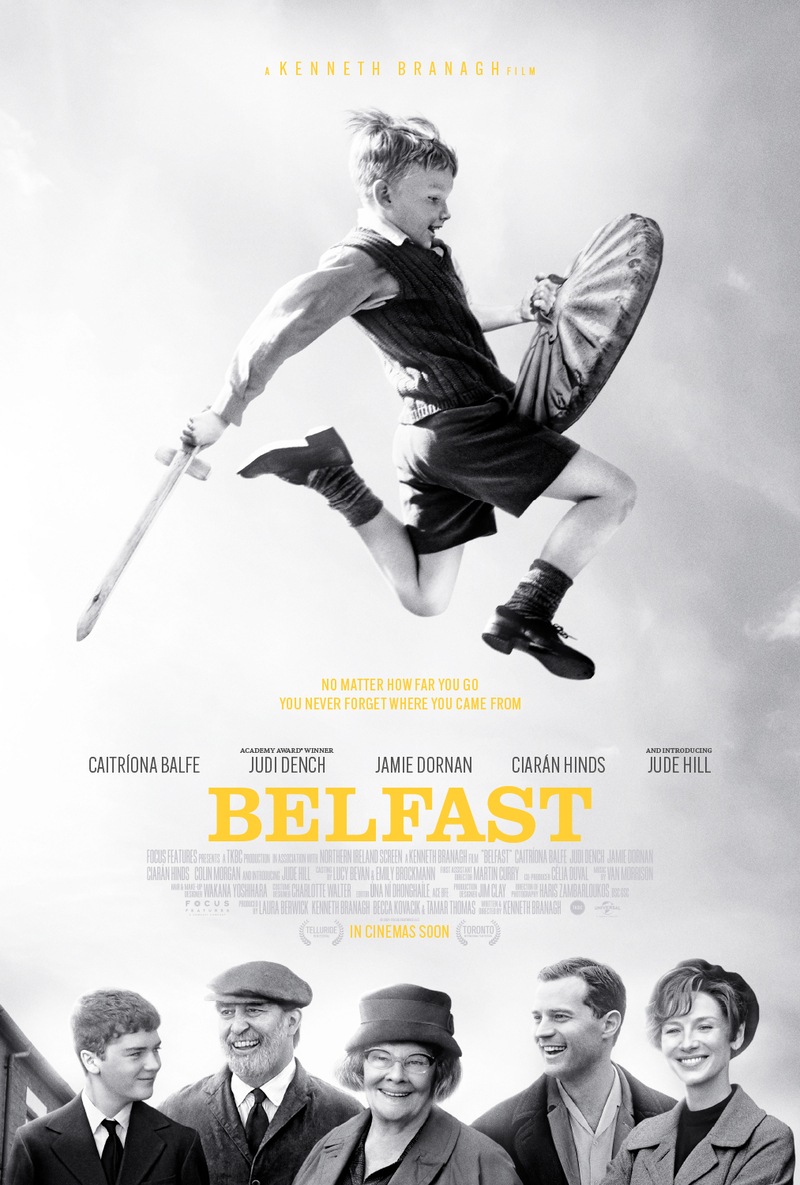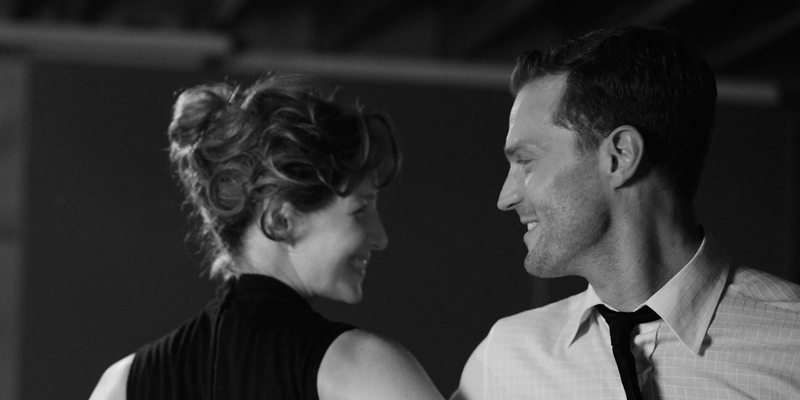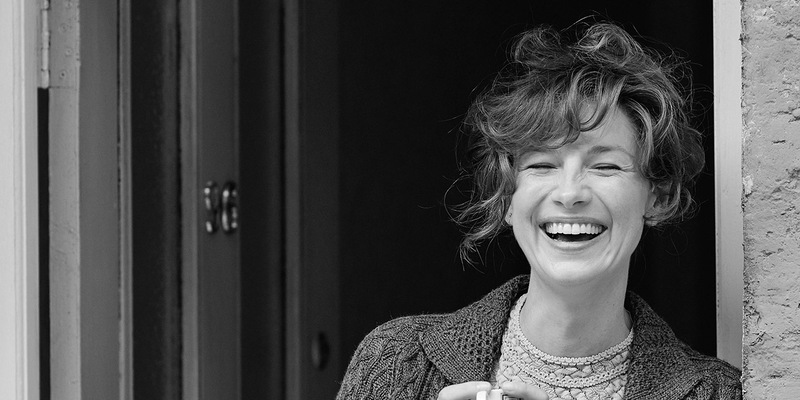
Review by
Eric Hillis
Directed by: Kenneth Branagh
Starring: Jude Hill, Caitríona Balfe, Judi Dench, Jamie Dornan, Ciarán Hinds, Colin
Morgan

After spending the last decade directing traffic for Hollywood,
Kenneth Branagh has taken advantage of a pandemic enforced gap in
mainstream film production to knock out a more personal film.
Belfast is said to be based on the filmmaker's childhood
in Northern Ireland, but it plays more like a movie inspired by other
filmmakers' movies about their childhoods. It may be set in one of the
scariest times and places Europe has seen in the past 50 something
years, but as black and white movies go it's notably rose-tinted. The
Troubles have never been portrayed as less troublesome.

Branagh opens his movie with a full colour tribute to the town he left
as a child. The fact that it resembles a tourist board commercial,
showcasing the city's most obvious landmarks, is an early suggestion
that Belfast probably doesn't hold the place in Branagh's heart that his
film would like you to believe. I doubt any filmmakers emotionally
invested in the city would populate their movie's soundtrack entirely
with the thuddingly obvious choice of Van Morrison songs.
When we cut to black and white and a title card tells us it's August
1969, we're still not entirely convinced. Little effort has been made to
capture the period. The digital photography of Branagh's regular DP
Haris Zambarloukos has an unmistakeably modern sheen. The sets
are suspiciously immaculate, as are the face and exposed knees of the
film's main character, young Branagh surrogate Buddy (Jude Hill),
the cleanest nine-year-old ever to play in the streets of an Irish city.
The city's Protestant community is given a little too much credit for
getting along with their Catholic neighbours, with just a few bad
elements responsible for the divisions. In parts you get the impression
that Branagh is confused about when his movie is set, like when
Judi Dench claims she saw 1937's Lost Horizon in
the cinema as a child, which would make her character a forty-something
in 1969. A cinema audience reaction to the flying car of
Chitty Chitty Bang Bang is more befitting those in
attendance at the first screening of
L'arrivée d'un train en gare de La Ciotat.

Belfast takes an episodic approach to its storytelling.
Lacking a distinct narrative thrust, the movie feels like it was
directly adapted from a wall of post-it notes in Branagh's office rather
than from a fully developed script. Young Buddy gets into a series of
bland and unoriginal scrapes while his supermodel parents (Jamie Dornan, Caitriona Balfe) debate whether to move to England or stay put. In a bizarrely
under-developed plotline, Buddy's older brother (Lewis McAskie)
is taken under the wing of Loyalist paramilitaries. Elsewhere we hang
out with Buddy's charming grandparents (Dench, Ciarán Hinds) as
they spout learned wisdom to the boy.
Every now and then a car explodes or a shop is looted, but for most of
Belfast's running time you would be completely unaware it was set during what
was close to a civil war. This would be fine if the movie were presented
entirely from the point of view of Buddy. When you're a kid you tend not
to be affected by the horrors carried out by adults, as you're too
focussed on your own life dramas. A movie that understands this is the
recent Lebanese drama
1982. Like Branagh's film it's focussed on a child living in a tumultuous
time and place, but it never sugar coats things and when we're in the
company of its adult characters we're all too aware of the stakes. Even
the adults in Belfast don’t seem all that bothered by the
Troubles. Buddy's "Pa" argues the case for a move to England primarily
by dangling the carrots of indoor toilets and a back garden to his wife,
who doesn't want to leave the city she's spent her life in, rather than,
you know, reminding her that their kids are growing up in a war
zone.

To some degree, Belfast gets by on its undeniable charm
and the strength of its performances. Younger international audiences
unfamiliar with the dynamics of the Troubles will likely prove more
receptive than those of us old and close enough to have grown up with
the horrors of Northern Ireland playing out on our nightly news. For the
latter, Branagh's choice to score a ludicrously over-the-top moment of
potential violence with the theme from
High Noon
will make us wonder just how familiar he really is with the land of his
birth. Few Irish filmmakers would make such a crass decision.


